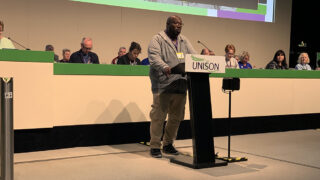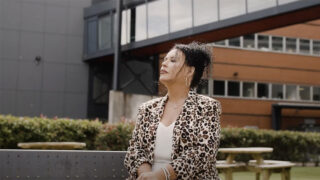UNISON will oppose moves to privatise social work, delegates declared as they debated the crisis in the service at UNISON’s local government conference today.
For the executive, Chris Tansley told delegates: “We’ve seen the closure of the College of Social Work, cuts to social work bursaries and now social workers can be named in court.”
And he asked how the prime minister could square his stated refusal to put up with any failure by state bodies looking after the vulnerable with the cuts that have been made to the service?
These were moves, he said, that had been “deliberately engineered by this government to remove it from council control and ultimately privatise it.”
And Mr Tansley said that there would be a campaign launched by the union to defend social work and social workers.
An impassioned debate saw delegates highlight the danger in plans to reduce regulation on social work services, as profit becomes a driver for private companies wanting to take on such services.
Already, one speaker pointed out, “Serco and G4S have a contract for undertaking the forensic examination of children who might have been abused.”
A delegate from Kirklees noted that the increased pressures on staff in the service mean a vast increase in stress-related health issues.
And a speaker from London added that “there isn’t really a quick-fix solution … the answer is bursaries, proper training and the resources to do the job”.
Another problem raised was agency rates, which can mean an agency social worker costing £10,000 more a year than a directly-employed social worker.
Moira Jenkins, a social work assistant from Wales, raised the issue of training and funding that training, telling conference: “Social work training needs to accessible and affordable for all.”
Jane Parr from Lancashire was another who “works alongside social workers” and described these as “dark days”, with “ever-increasing paperwork and ‘helpful’ computer systems taking time away from face-to-face work”.
How long, she asked, “does it take a social worker to change a lightbulb? Five minutes – and then three hours to do the paperwork to justify the intervention”.
Alongside the commitment to campaign against privatisation, the executive was urged to:
- develop and promote a campaign pack to recruit and organise social workers;
- continue to promote the use of UNISON’s Caseload tool and help ensure safe workload levels for social work;
- seek to work with other organisations in order to stand up to attacks on the profession.








